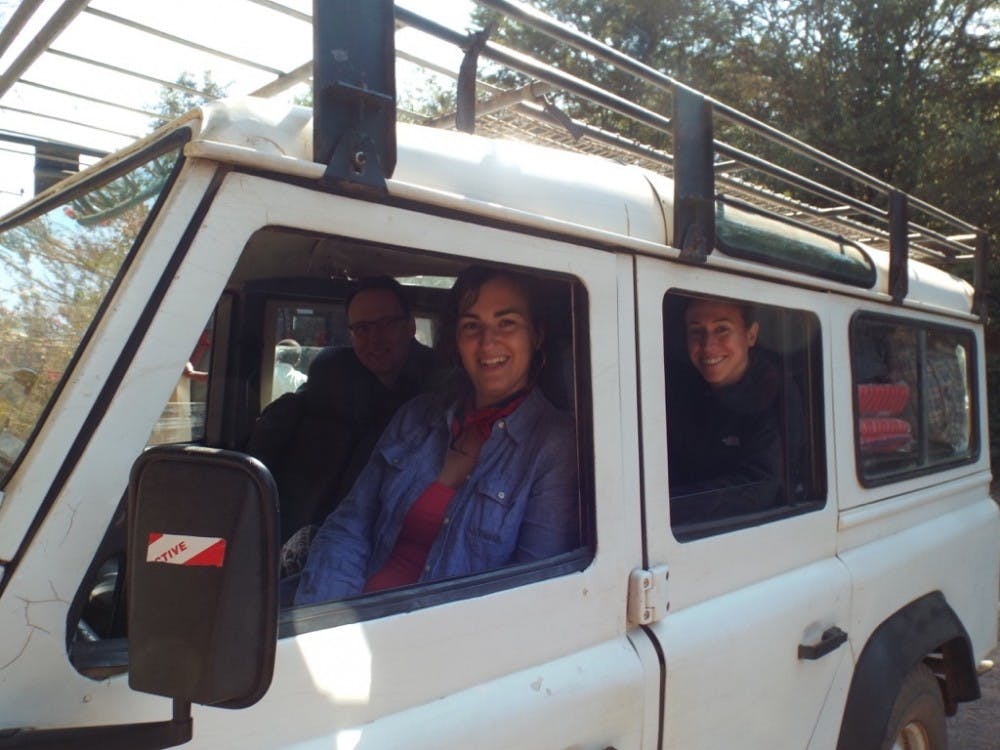In many developed societies, generosity is something to be taken for granted, however, in others, it is a way of life that strengthens social ties and can ensure long term survival.
This is the subject of the research in the Human Generosity Project, a cross-cultural project co-directed by ASU psychologist Athena Aktipis and Rutgers anthropologist Lee Cronk. The project looks at the way generosity affects societies and how relationships are created through generosity.
Aktipis and Cronk have extended their research into eight different communities across the world, including hunter-gatherer societies, agriculturalists and even modern cowboys, analyzing the way generosity functions within each.
All of these communities are extremely vulnerable to shocks or a situation that involves “some sort of massive resource loss where you might loose 30 percent of your cattle,” Aktipis said.
Because of the combined vulnerability and “small scale of these societies where everyone knows each other,” it’s easier to see the effects of generosity, said ASU evolutionary psychologist Daniel Sznycer .
So far, the researchers have broken down generosity into two concrete categories: a need-based transfer and a debt-based transfer. A need-based transfer operates on the idea of generosity, and a debt-based transfer is one that operates under more traditional principles.
The researchers found need-based transfers in the Osotua system in the African Maasai culture. In Osotua, “you only ask for help if you’re in need, and if you’re able to give, then you do," Aktipis said. "We call it a need-based transfer because it's not based on keeping track of debt and credit, it’s just based on the need of the recipient."
Sznycer said the need-based transfer depends on relative need.
"People who are needier elicit help, which is more valuable to the recipient than the donor," he said. "When you have an apple and they are starving, maybe when the role is reversed they will give you an apple.”
On the other hand, a debt-based system involves the tallying of debt and credit with each act of giving and taking.
Aktipis said the crux of the project's findings is that "when both partners were using these need-based transfer rules, survival was much higher (than those operating under the debt-transfer system)."
This is an idea that is somewhat contradictory to basic intuition — but it shows that those who have taken the time to cultivate a relationship based on altruism see more in their returns, despite that not being a part of their end goal.
"If you’re keeping track of debt and credit then you actually lose a potentially valuable partner,” Aktipis said.
In a need-based system, people can lean on each other in hard times; whereas in a debt transfer system someone might be rejected if they have nothing to give, which would be detrimental to strong relationships in the long run.
However, it’s not a concept as abstract as giving anonymously to a charity. It important that the Masaai cultivate this relationship first through smaller gifts. For the Masaai, the “Osotua relationship is already a strong relationship and basically never ending," said Marco Campenni, a postdoctoral researcher on the project.
In this way these relationships are “not tallied but also not necessarily forgotten about because (giving) builds the relationship,” Aktipis said.
The more strong relationships that are present within a community, the better the chances are that the community survives and thrives.
However, these interactions are not isolated to smaller, volatile environments, and they can be seen everyday in the expected exchange of a card on a birthday or wedding. Humans constantly do things which influence relationships, albeit sometimes on a smaller scale.
“One main interest in better understanding this phenomenon is to see if there is any kind of (need-based) instance in western societies," Campenni said. "Our intuition is that maybe it could be a kind of similar behavior but could be very restricted in a sort of small group with say, me and my friends or a family group."
Aktipis said these “need-based transfers often represent what we mean by generosity."
Reach the reporter at dcdunlop@asu.edu.
Like The State Press on Facebook and follow @statepress on Twitter.




